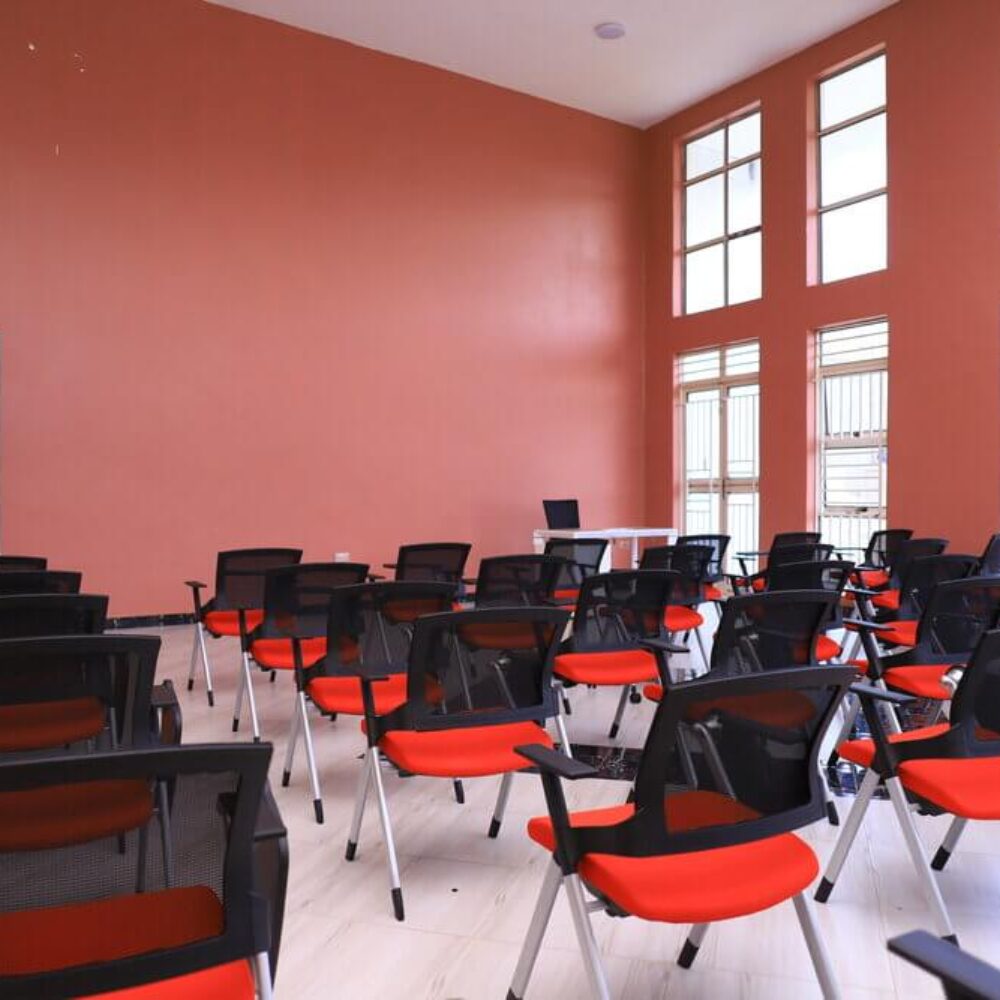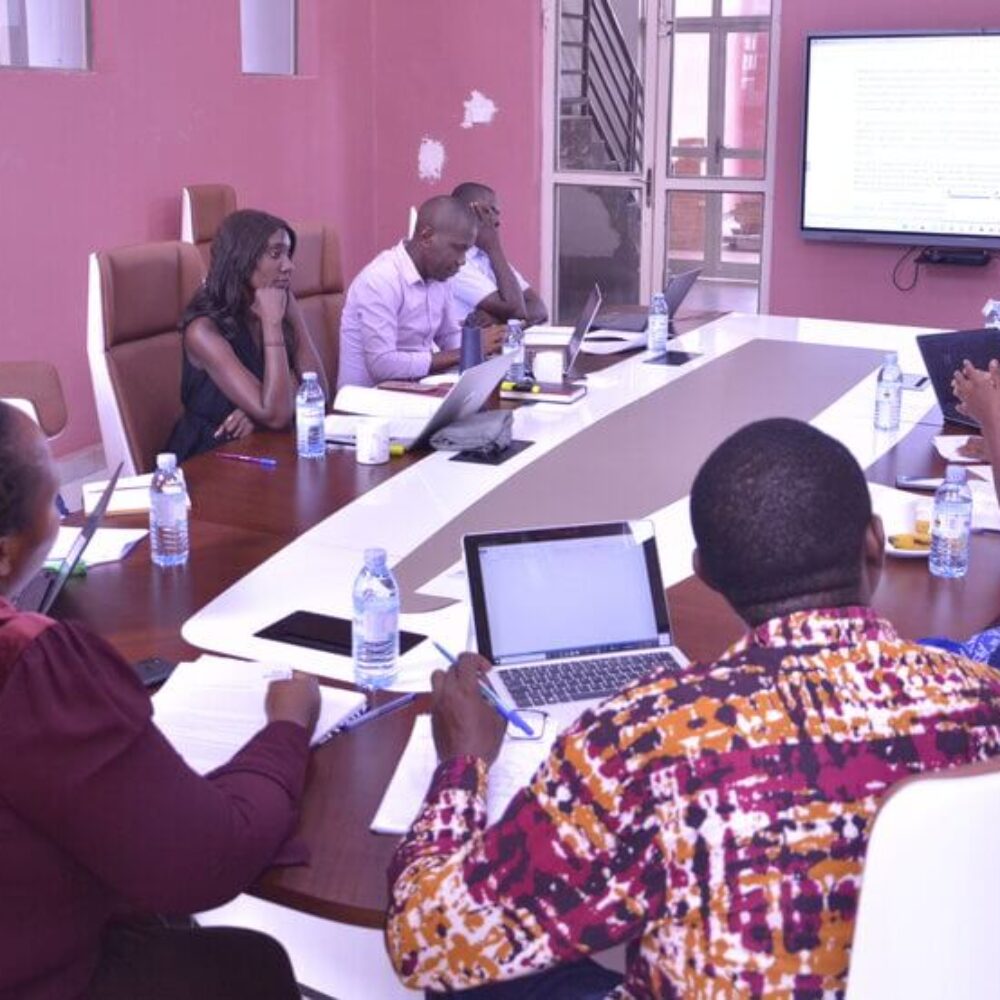Mandatory pregnancy testing in Uganda: constitutional and human rights implications
Nimrod Muhumuza, Head of Research, Afya na Haki
Introduction
In Uganda, the practice of compulsorily testing both minors and adults for pregnancy at learning institutions is commonplace. Primary and secondary schools are in the habit of conducting routine assessments to determine whether their female pupils are pregnant even before any physical signs and symptoms appear.[1] The same is true for universities and other institutions of higher learning where blood samples are reportedly drawn from students for more accurate tests. Once pupils and students are found to be pregnant, they are usually suspended from school until they have given birth or expelled, never to return to that particular school. Students might lose the privilege of free university accommodation at some public universities.[2] Private tertiary institutions often follow the lead of primary and secondary schools and either suspend or expel the students.
Rationale
Ugandan society is deeply religious and socially conservative. Schools and institutions of higher learning play the most important role in perpetuating these moral and social values. Ugandan education is inextricably wedded to religious institutions, particularly the Anglican and Catholic churches, which own or co-manage most of the private and public schools in the country with the government. This is a relic of the colonial era when missionaries established schools, primarily as conversion centers, to spread their message and religion. It is no wonder that many of the objections to pregnant girls continuing in school are that it denigrates cultural and religious values. A religious leader in Mukono warned thus:[3]
“All head teachers, I want to tell you that we shall not allow pregnant or breastfeeding girls in class. When all girls turn up, carry out the usual medical examination so that those found pregnant can go back and give birth they will come back after giving birth. Imagine someone saying even breastfeeding ones should be allowed to attend class. No, this we shall not accept because our schools were started purposely not only to impart knowledge but also discipline in children. How can a teacher be teaching when a girl is giving breasts to her child?”
A widespread but not entirely universal practice
Uganda is not alone on the continent when it comes to restrictions placed on pregnant school-going children from continuing their education. A Human Rights Watch Report (HRW) indicates that at least 30 African Union (AU) countries now have laws, policies, or strategies to protect pregnant students and adolescent mothers’ right to education.[4] 25 countries do not. Even among those 30 states, there are varying standards. Uganda’s MoES introduced revised guidelines in 2020 following the re-opening of schools in the wake of the COVID-19 pandemic. HRW observes that these conditions constitute an “effective barrier,” particularly as girls must stay out of school for up to a year.[5] The policy relies on effectively compulsory periodic pregnancy testing to detect and “prevent pregnancies” (without mentioning how the latter objective is to be achieved), potentially violating girls’ rights to privacy, equality, and bodily autonomy. The legality of mandatory pregnancy testing, compulsory maternity leave, and conditional re-entry to school after giving birth has been tested in several countries shown below.
Do children have a right to privacy?
It is important to determine whether school-going children enjoy the right to privacy and to what extent this right applies. In short, the answer is yes: school-going children have a right to privacy. In Uganda, this right is guaranteed by the 1995 Constitution, which protects individuals from being subjected to “unlawful searches of the person.” The right to privacy for children has not been litigated as frequently or as robustly as it has for adults but a few instructive cases exist. In Centre for Child Law and Others v Media 24 Limited and Others,[6]the South African Constitutional Court observed that the right to privacy is “more pressing” when dealing with children. Privacy is central to a child’s identity. Further, protecting the privacy of younger persons fosters respect for their dignity, personal integrity and autonomy. Children’s rights, dignity, and privacy are inherently intertwined as each child has dignity, special needs and interests.
Balancing children’s right to privacy and public interest: mere curiosity is not enough
Having established that children do have a right to privacy, it is important to weigh that right against the need to limit its enjoyment in the interests of the broader public. May a student’s constitutional right to privacy be limited to balance schools’ interests in maintaining a safe learning environment? This question has been considered in the case of Gruenke v Seip.[7] In that case, the US Superior Court had to determine whether schools can limit student’s right to privacy at school for the maintenance of public order. The Court observed that students at school have a reduced expectation of privacy compared to the public at large. In determining the circumstances under which this right can be limited in a school environment, it is important to determine the nature of the intrusion. The government’s interest in searching for a student’s person or property must be compelling and important enough to justify the intrusion. In that particular case, a swimming coach at a school had insisted that a female member of the swim team take a pregnancy test after he had observed what he thought were signs of pregnancy. The Superior Court observed that a school cannot compel a student to take a pregnancy test without a legitimate health concern about a possible pregnancy. These legitimate health circumstances might include concerns about the health of the student or the unborn child. Crucially the Court found that mandatory pregnancy testing to merely satisfy a school official’s curiosity was not enough.
A similar issue arose in the Kenyan case of KELIN & 3 Ors v Cabinet Secretary Ministry of Health & 4 Ors.[8] This case challenged a directive from the then President of Kenya requiring local governments to obtain information about the HIV prevalence of school-going children. The Kenyan High Court held that compulsory testing for HIV in school-going children would be a violation of the children’s right to privacy. The court observed that persons, including children, must consent to HIV testing even in the face of overwhelming public interest. Countries on the continent have made similar “public interest” arguments as the rationale that justify mandatory pregnancy testing, compulsory maternity leave, suspension and expulsion from school of pregnant students. The following cases have examined these issues.
Legal and Human Rights Centre & Centre for Reproductive Rights v Tanzania[9]
This case challenged Tanzania’s policy of expelling pregnant school girls and barring re-entry for those who had given birth. The Applicants argued that the policy violated the African Children’s Charter, specifically its provisions prohibiting discrimination, cruel treatment, and the requirement to guarantee the right to education. The respondent state contended that it was exercising its discretion, under the principle of the margin of appreciation to interpret and apply the provisions of the African Children’s Charter. Further, it was incumbent upon Tanzania to protect the society’s “values and morals.” These are the same arguments made by the religious leader from Mukono alluded to earlier.
The African Children’s Committee found that forced or mandatory pregnancy testing and expulsion from schools was a violation of Article 16 of the African Children’s Charter, which prohibits torture and inhuman or degrading treatment. The Committee found that this treatment is that which causes mental or physical harm and includes physical and psychological acts committed against victims without their consent or under coercive circumstances. The Committee concluded that psychological harm and physical pain experienced by girls forced to undergo mandatory pregnancy tests and the humiliating manner of expulsion amounts to cruel, inhuman and degrading treatment. The Committee cited the UN Committee on the Rights of the Child which found that expulsion based on pregnancy is a discriminatory act which should be prohibited.
The Committee further found that girls are expelled with no chance of re-entry in violation of Article 11(6) of the African Children’s Charter. The provision requires states to ensure children who become pregnant before completing their education must have an opportunity to continue their education. The provision of education must not be tied to any conditions. The Committee further emphasized that there should be no restrictions on the pupils’ return after they have given birth. States must undertake measures to encourage pregnant girls to continue with their education and ensure that there is retention and re-entry of pregnant and married girls or alternative education programmes where this is impossible.
The Committee also observed that setting pre-conditions to access education violates children’s rights, particularly the right to education. That respondent’s contention on morals and values had no basis in the provisions of the Charter and was an unacceptable argument. Forced pregnancy testing is a violation of the right to education, right to dignity, freedom from torture and the right to privacy. There is no argument of morality or margin of appreciation that can justify a policy and practice violating the Charter’s provisions.
WAVES v Sierra Leone[10]
WAVES v Sierra Leone challenged Sierra Leone’s policy of banning school-going children from continuing in mainstream schools and instead continuing to study in separate educational facilities at the ECOWAS Community Court of Justice (ECCJ). The petitioners argued that the establishment of these facilities amounted to institutionalized discrimination and was a violation of the right to equal education, especially given that teaching in these schools was “significantly inefficient.” The petitioners alleged violations of the African Charter, the African Children’s Charter, the Maputo Protocol, the UNESCO Convention Against Discrimination in Education, the UN Convention on the Rights of the Child, the CEDAW, the ICESCR, and the UDHR. The government contended that banning pregnant school-going pupils from mainstream schools was designed to mitigate the “negative influence” on their peers.
ECCJ found that there was no reasonable justification for the differential treatment meted out to pregnant girls who were in school before they became pregnant. Banning pregnant pupils from continuing with their education in mainstream schools was “clear evidence of prima facie violations of the right to education and non-discrimination.” Further, girls should not be discriminated against based on their (pregnancy) status, essentially elevating pregnancy to a protected ground alongside sex, religion and ethnicity. It is essential for schools to not be discriminatory by banning them from educational facilities. The ECCJ declared that Sierra Leone’s policy of forcing pregnant pupils into alternative facilities was discriminatory and ordered that the ban be reversed.
The foregoing cases are important because they demonstrate that the judicial and quasi-judicial organs are likely to find that mandatory pregnancy testing is a violation of several human rights instruments. It is also likely that the Uganda MoES guidelines, which require compulsory maternity leave, are likely to be a violation of several Bill of Rights provisions, especially considering that there is no reasonable justification for such a measure. If the argument is that pregnant pupils will be a negative influence on their peers, this must be supported by empirical evidence and, in any case, must meet the test for limitation of rights under Article 43 of the Constitution.
The alternative: examples from Uganda
A few schools in Uganda have demonstrated the capability to accommodate pregnant students even before they give birth. Peas Schools, a chain of 30 secondary schools have been accommodating pregnant and breastfeeding adolescent girls in their schools with no demonstration of the so-called negative influence on the rest of their peers. Ngora High School also has a policy that accommodates pregnant and breastfeeding pupils.[11] These schools prove that it is possible to implement common-sense regulations that ensure that school-going children who are either pregnant or have given birth can continue their education.
[1] BE Sharon “Education: Uganda registers rights progress for pregnant students but barriers remain” Parliament Watch accessed at https://parliamentwatch.ug/blogs/education-uganda-registers-rights-progress-for-pregnant-students-but-barriers-remain/
[2] Ibid
[3] F Muzaale “Block pregnant girls from attending school, bishop tells teachers” Daily Monitor 10 January 2022 accessed at https://www.monitor.co.ug/uganda/news/national/block-pregnant-girls-from-attending-school-bishop-tells-teachers-3677180
[4] Human Rights Watch “Africa: Rights Progress for Pregnant Students” accessed at https://www.hrw.org/news/2021/09/29/africa-rights-progress-pregnant-students
[5] Human Rights Watch, ibid
[6] (CCT261/18) [2019] ZACC 46; 2020 (3) BCLR 245 (CC); 2020 (1) SACR 469 (CC); 2020 (4) SA 319 (CC) (4 December 2019)
[7] 225 F.3d 290
[8] Petition 250 of 2015.
[9] Decision No 002/2022
[10] ECW/CCJ/APP/22/18
[11] T Abet “School leaders welcome African Union ruling on pregnant girls” Daily Monitor 26th September 2022 accessed at https://www.monitor.co.ug/uganda/news/national/school-leaders-welcome-african-union-ruling-on-pregnant-girls-3962008; IA Abalo “Are schools prepared to take in pregnant girls” Daily Monitor 10th November 2020 accessed at https://www.monitor.co.ug/uganda/special-reports/are-schools-prepared-to-take-in-pregnant-girls–3017368








